More than a fraternity.
Built on Friendship, Sound Learning, and Rectitude since 1848.
Cardinal Principles
Our original three pillars haven’t budged an inch since the Fraternity was founded by the Immortal Six at Miami University. The pillars are: The cultivation of friendship among its members, the acquirement individually of a high degree of mental culture, and the attainment personally of a high standard of morality. Shortened, we refer to the Cardinal Principles as Friendship, Sound Learning, and Rectitude.
Friendship
If you ask our members what they have received from their Phi Delta Theta membership, you’ll often hear about an experience filled with brotherhood and mutual respect. Great friendships are a crucial component of living well, and Phi Delta Theta challenges its members to create long-term and meaningful relationships with each other that stand the test of time. Through the ups and downs of life, relationships built through fraternity offer our members a strong foundation, network, and support structure.
Sound Learning
Sound Learning is much more than getting good grades. It’s about intellectual curiosity and the search for truth. It’s about well-roundedness and becoming cultured in all aspects of life. Phi Delta Theta challenges its members to live a life of continuous learning, and we invest in educational experiences that offer new dimensions of knowledge that may not be taught in the classroom, such as soft skills, work ethic, leadership, and compassion for others.
Rectitude
Rectitude can be defined in many ways, but the Fraternity resonates with its qualities of honesty, integrity, character, kindness, and compassion. As men of strong moral character, we are called to exemplify the principles upon which we were founded and that we, as Phi Delts, swear to uphold. Though all our principles are considered equal, Rectitude is what guides us into becoming the greatest versions of ourselves.
Since 1848
Our History
Phi Delta Theta’s expansion hasn’t slowed down since its founding over 175 years ago. The Fraternity operates from the General Headquarters building at 2 South Campus Avenue, across from Miami University in Oxford, Ohio.
300 +
College Campuses
190 +
Phi Delt Chapters and Emerging Chapters
290,000 +
Men Initiated
186,000 +
Living Phi Delt Alumni
Become the Greatest Version of Yourself
At the heart of everything we do is this promise to each and every member of our organization.
Adaptive Leadership
The world around us is changing by the moment. Through the high standards and collective support of Phi Delta Theta brotherhood, our members can adapt to new circumstances and still stay true to their best selves, stepping up as leaders in the face of uncertainty.
Fulfilled Potential
In each of us, there is greatness. But bringing out that greatness takes an investment in educational excellence as well as cultivating a community of support around each member. Successes are celebrated. Mistakes are transformed into learning. And new dimensions and definitions of intelligence let each discover and develop their unique skills and talents.
Lifelong Engagement
Once a Phi Delt, always a Phi Delt. The bonds created at the beginning of membership are designed to sustain each person through every stage of life, keeping all connected through peer-to-peer relationships as well as via valuable mentor/mentee networking and intergenerational sharing of wisdom.
Our Commitments
Help Our Members Become the Greatest Versions of Themselves
Helping every individual to meet his true potential is the bedrock of the Phi Delta Theta Fraternity. By celebrating each person’s true self, and by learning from each other’s strengths while helping to improve each other’s weaknesses, every member of Phi Delta Theta develops into a greater version of himself than he could ever on his own. Rather than try to find young men to mold into some ideal, we celebrate the uniqueness of each individual and, through encouragement, values, example and brotherhood, empower every brother to exceed his personal expectations.
As undergraduates, Phi Delts can take advantage of the Fraternity’s Pursuit of Greatness four-year membership development program, challenging them to grow personally and professionally by learning about valuable soft skills, taking on chapter officer positions, attending educational experiences such as the Kleberg Emerging Leaders Institute and the McKenzie President Leadership Conference, and earning badges and college credits that serve as a tangible demonstration of skills they have developed through their Phi Delta Theta experience.
As alumni, Phi Delta Theta encourages its members to stay engaged and become their greatest version through volunteerism, mentorship, and networking with the vast Phi Delt network.
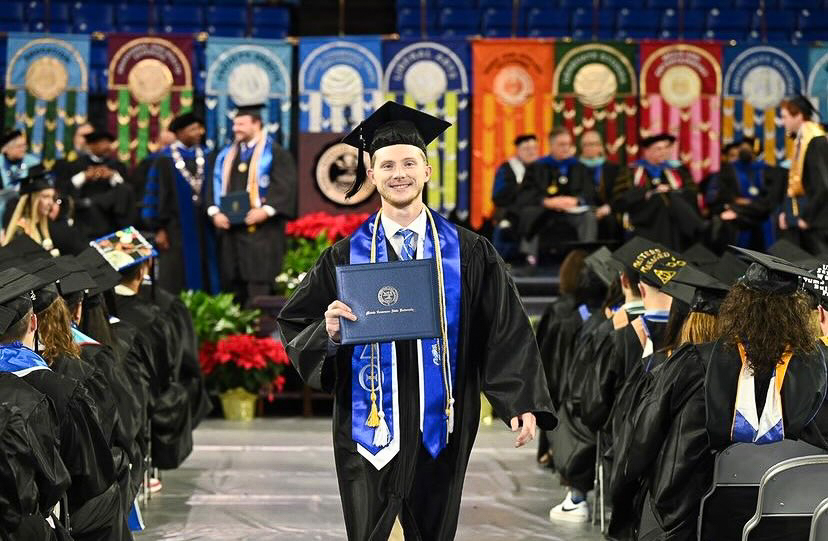
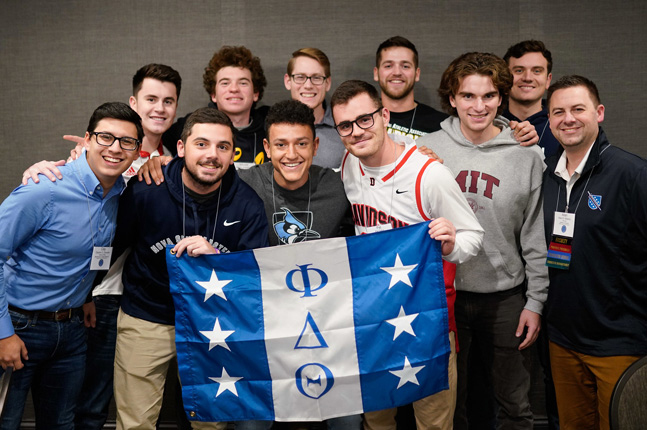
Provide the Safest Fraternity Experience in the Greek Community
Phi Delta Theta is committed to continuing its leadership role in higher education when addressing the widespread challenges of campus health and safety.
Creating safe environments for our undergraduate students that promote personal wellness is, and has been for many years, a top priority for the Fraternity. Like any fraternity or organization that works directly with young adults, Phi Delta Theta is not immune to accidents or individuals with bad intent, but we remain vigilant in our strategies and are swift to act when individuals and chapters divert from our expectations.
Alcohol-Free Housing
In 1997, Phi Delta Theta announced its alcohol-free housing policy and hasn’t looked back. It has brought with it countless benefits and organizational momentum, including strong academic performance, membership growth, risk reduction and heightened safety, improved facilities, heightened volunteer engagement, and lower costs. Phi Delta Theta remains one of a few fraternities to have such policy.
Since the implementation, Phi Delta Theta has undergone transformational change and has become a noticed leader within the fraternal world. Most importantly, the culture that it has created is attracting values-based men who are placed in safe environments where they can become the greatest versionsof themselves
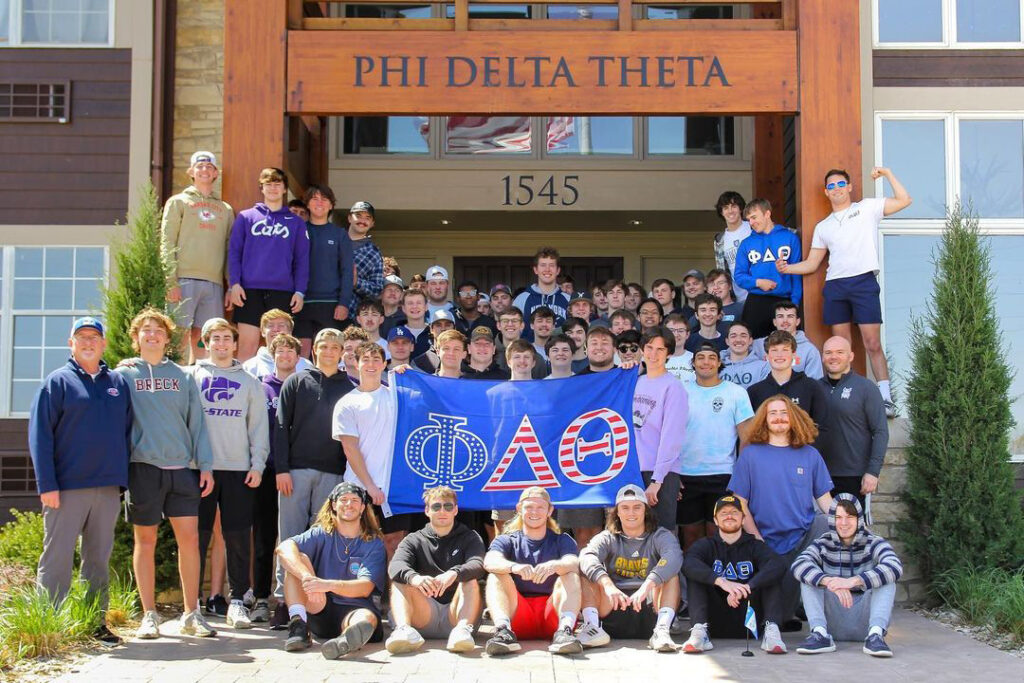
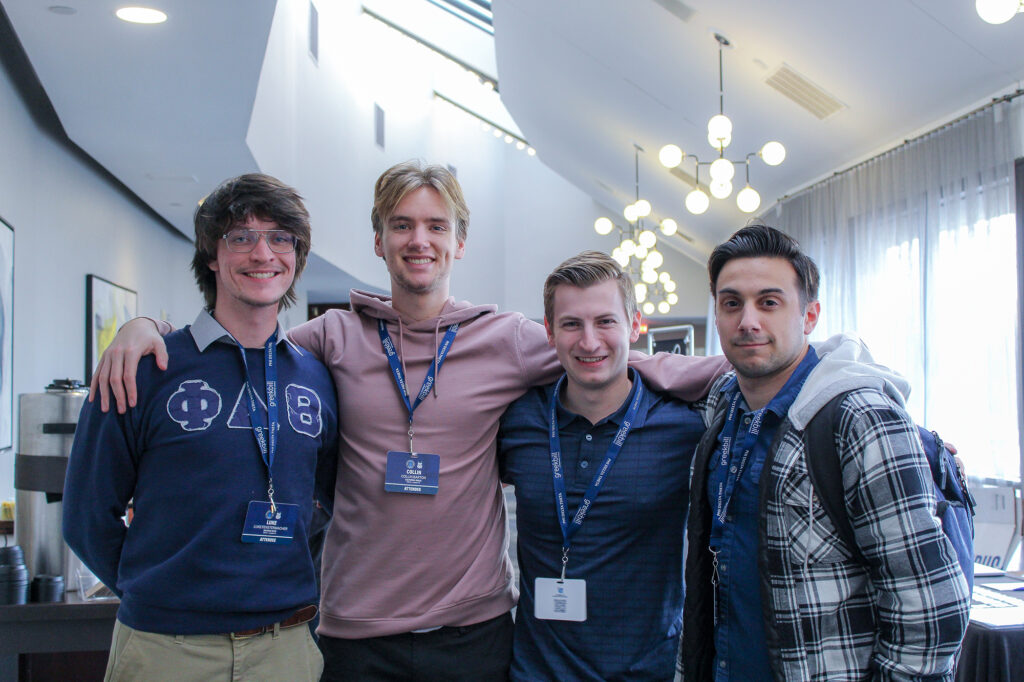
A Membership Experience Free of Hazing
Phi Delta Theta does not condone any form of hazing and spends great resources educating about its dangers and consequences. If discovered, the Fraternity takes swift disciplinary action against chapters or individuals responsible. Hazing is contrary to the purpose of fraternity, let alone Phi Delta Theta Fraternity.
When it comes to large-scale anti-hazing legislation and policies, Phi Delta Theta supports efforts at the federal, state, and campus level that heighten the consequences associated with those individuals who chose to do it. The Fraternity’s partnership with the Max Gruver Foundation places members of Phi Delta Theta inside high schools to deliver anti-hazing education.
A Diverse Membership Representing Today’s College Population
Phi Delta Theta continues to grow and plan for an ever-changing higher education landscape. Our students understand this, and the mission of Phi Delta Theta is to support and foster a place of belonging for all who want to live out our Cardinal Principles. For Phi Delta Theta to be successful, we must ensure access to our experience for all who deserve to wear the letters and create a member base that reflects the student body of our numerous campuses.
The Fraternity has unique opportunities for first-generation students, including scholarships and programming to assist these students as they navigate the college experience.
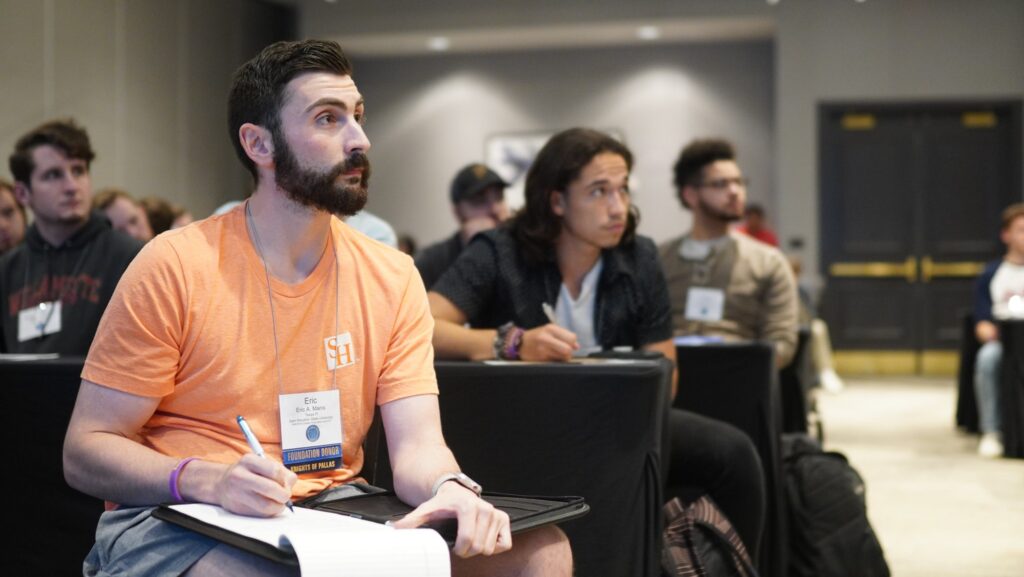
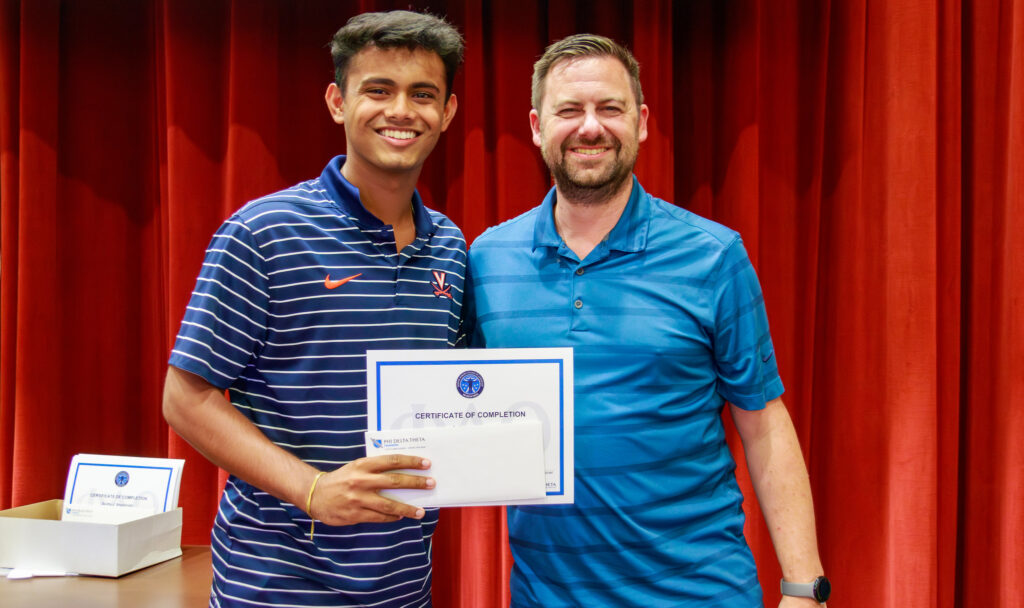
Innovative Funding of Educational Experiences and Scholarships
Phi Delta Theta’s generous alumni and supporters have allowed the Fraternity to maintain one of the strongest financial positions in the industry and make an unprecedented impact on its members.
The Phi Delta Theta Foundation’s Campaign 2030: A Greater Version for Tomorrow is the financial vehicle that is allowing us to actualize our strategic plan, Phi Delt 2030, and cement our place as the premier fraternal leadership society. Dollars raised through the campaign fund impactful member development opportunities, health and safety measures, and support of our people.
Leave ALS Better Than We Found It
Through fundraising, service, and awareness efforts, Phi Delta Theta’s membership is committed to supporting the fight against ALS, commonly known as Lou Gehrig’s disease, in honor of Phi Delta Theta member and baseball great, Lou Gehrig.
Since 1955, Phi Delta Theta has annually presented the Lou Gehrig Memorial Award to the Major League Baseball Player who best exemplifies the spirit and character of Lou Gehrig, both on and off the field. The award, located at the Baseball Hall of Fame and Museum in Cooperstown, New York, was created to acknowledge an individual player’s outstanding commitment to both his community and philanthropy.
Iron Phi was developed in 2010 to strengthen both Phi Delta Theta and its impact on the fight against Lou Gehrig’s disease. Through the fundraising efforts of participants on the way to achieving personal athletic goals, Iron Phi is a community of philanthropists that focuses on wellness for a cause.
In 2017, Phi Delta Theta took a significant step to broaden its reach and deepen its impact on the fight against ALS when it launched the Live Like Lou Foundation, a 501c3 not-for-profit entity with a national scope. Live Like Lou’s mission is to supporting families affected by ALS, fund ALS research to find treatments or cures for Lou Gehrig’s disease, and honor Lou Gehrig’s legacy.
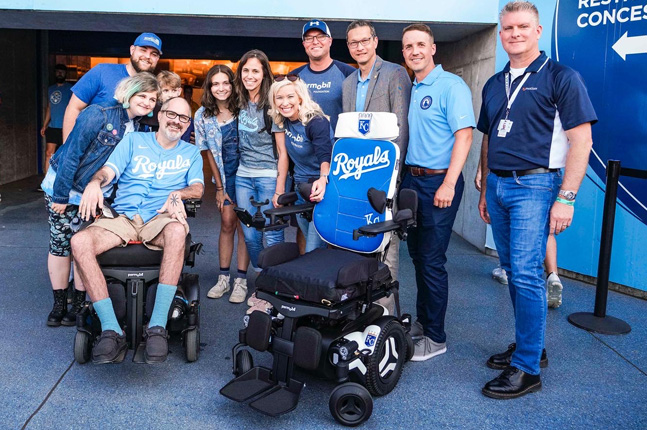
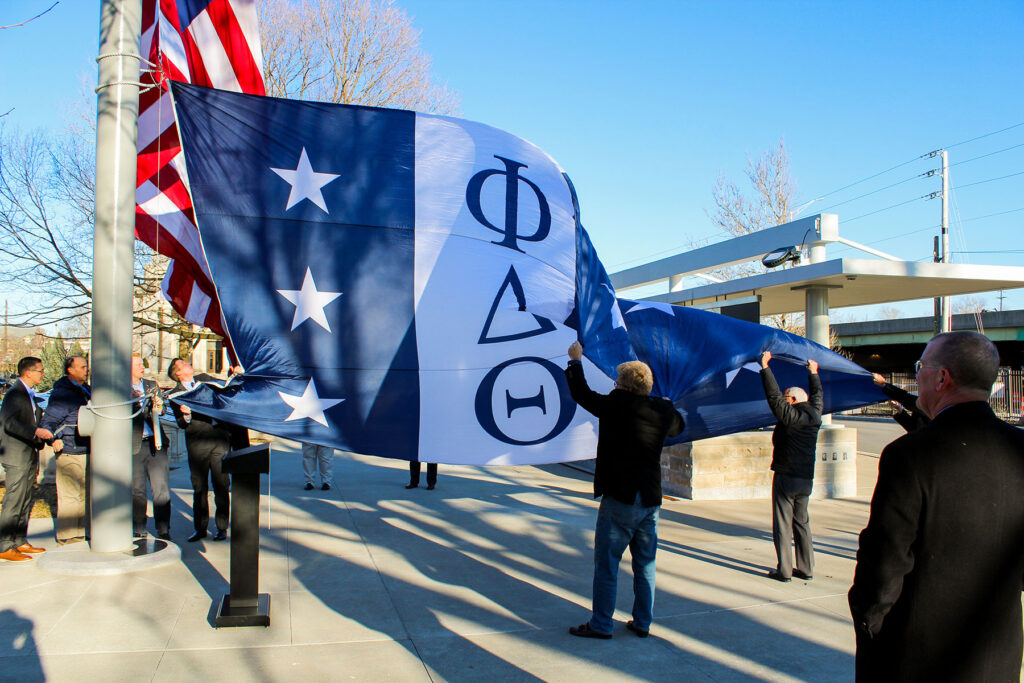
Bold Leadership That Leads to Being Recognized as the Premier Fraternal Leadership Society
Bold decision making, high membership satisfaction scores, and diligent strategic planning is in Phi Delta Theta’s DNA, and the Fraternity’s Phi Delt 2030 strategic plan lays the groundwork for Phi Delta Theta to lead as the premier values-based fraternal leadership society. Ensuring the wellbeing of our members, providing a clear and attractive value proposition to the next generation of Phis, and showcasing the vitality of our organization is paramount to our internal audiences, but our success as an organization is maximized when outside audiences recognize this and share our story.
Locate Phi Delt
Looking to join or engage with Phi Delta Theta? Explore our interactive map to find undergraduate chapters and First Thursdays with the Phis venues near you.

